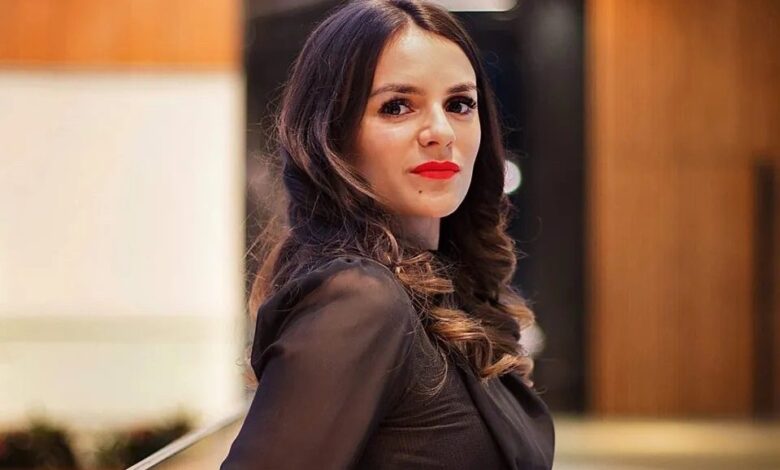Russian ‘spy ring plotted high-level espionage, including honey traps’

A Russian spy ring plotted “high-level espionage” including honey-trapping their targets from their base in the UK, the Old Bailey has heard.
Five Bulgarians plotted a series of “operations”, which included sophisticated surveillance on an US air base that they believed was being used to train Ukrainian soldiers.
Members of the gang even discussed kidnapping one of their targets and taking him to Moscow or killing him, the court heard.
Ringleader Orlin Roussev, 46, and Bizer Dzhambazov, 43, have already admitted conspiring to spy with a Russian agent using the alias “Rupert Ticz”, whom the prosecution allege is Jan Marsalek, an Austrian, between 2020 and 2023.
Orlin Roussev, 46, and Bizer Dzhambazov, 43, have both pleaded guilty to conspiring with a Russian agent
Katrin Ivanova, 33, Vanya Gaberova, 30, and Tihomir Ivanchev, 39, all deny the same charge. The jurors heard that the case involves a love triangle as both women were in a relationship with Dzhambazov.
Alison Morgan KC, prosecuting, said they used “sophisticated” surveillance of people and places, including “manufacturing and using false identities and deploying advanced technologies to acquire information”.
They were paid “significant sums of money” and evidence shows hundreds of thousands of pounds going to the ring.
When they were arrested, they were found with 221 mobile phones, almost 500 Sim cards, dozens of recording devices, 11 drones, three IMSI grabbers – which can be used to intercept data from devices being used nearby – 91 bank cards and 75 passports.
Marsalek, who “can properly be described as a Russian agent” and was “acting as an intermediary for the Russian intelligence services”, set the tasks for Roussev, the court heard.
He then passed orders on to the other Bulgarians and Dzhambazov ran operations on the ground, it was said.

Jan Marsalek is an Austrian national who ‘can properly be described as a Russian agent’
One of the six operations that will be detailed in front of jurors will be surveillance at the Patch Barracks, a US Military Base in Stuttgart in Germany, in late 2022, during Russia’s invasion of Ukraine.
“The reason why it is so interesting to Russia is because it is believed to be a place where Ukrainian soldiers are being trained by US forces,” Ms Morgan said.
“So what was being contemplated is going to the base and gathering highly sensitive information using highly sophisticated tech to find out who is there on the base and to get as many personal details as they can about the people inside that base.”
They planned to use “cellular network interception devices”, which is “equipment of highest level of sophistication”, she added.
There are almost 80,000 messages between Roussev and Marsalek, which Ms Morgan said “contain frequent references to various parts of the Russian intelligence services”, including the Main Directorate of the General Staff of the Armed Forces of the Russian Federation [GRU], the Federal Security Service [FSB] and the committee for State Security [KGB] and refer to Vladimir Putin, the Russian president.
Another operation involved targeting Christo Grozev, who was the lead investigator on Russian affairs for Bellingcat.
He is considered an opponent by the Kremlin as his work includes uncovering Russian links to the 2018 Salisbury attack, the poisoning of Alexei Navalny, the opposition leader, events relating to the downing of MH17, the Malaysian Airlines plane shot down over Ukraine in 2014, and the activities of intelligence agencies.
Mr Grozev was informed in 2022 by the Austrian authorities that information was being compiled on him for Russia and the threat against him is perceived as such that he now lives apart from his family.
Around the same time, the Bulgarians followed Mr Grozev in Montenegro, Valencia in Spain and Vienna in Austria, passed this information back to Marsalek and discussed the “tactical options” that could be used against him.
‘Espionage’ and ‘deceit’
Marsalek and Roussev discussed robbing him of his laptop or phone and taking it to the Russian Embassy, burning his property, putting him under surveillance, kidnapping him and taking him to Moscow or possibly killing him, and infiltrating Bellingcat, the court heard.
They put him under surveillance, which began in earnest in late July 2021 and included watching his home and mapping his routes and activities.
The evidence, which will be heard over the course of the trial and is due to run until February, shows “high levels of espionage with high levels of deceit”, it is alleged.
“They were in positions of proximity to targets, following them on aircraft, even envisaging the possibility of direct contact, for example by female defendants being used as a ‘honey trap’, as sexual bait to capture more information from the targets,” Ms Morgan explained.
“It was high risk and it was highly sophisticated. The defendants earned significant sums for what they were doing.”
The court heard that the defendants in the dock at the Old Bailey may try to use their relationships as a defence to the conspiracy charge.
Both Ms Ivanova and Ms Gaberova were in a relationship with Dzhambazov, and Mr Ivanchev and Ms Gaberova had previously been in a relationship.

Bizer Dzhambazov, who pleaded guilty to conspiring with a Russian agent, with Katrin Ivanova, who has denied involvement
Ms Morgan said: “They may each, in different ways, seek to rely on their relationships to somehow suggest that they were in some way misled, or that they were blindly following others or simply following others around Europe out of love or dedication.
“The prosecution’s case is that they were all knowingly involved in this conspiracy. This is not the sort of activity that you carry out simply because of romantic relationships.”
Ms Morgan said that even if the defendants were “financially motivated” and did not share “Russian ideology” or “support Vladimir Putin” they can still be guilty of the offence if they knew that what they were doing was for the benefit of Russia.
The group also allegedly plotted to stage a demonstration outside the Kazakh Embassy in September 2022 “to create a pretence that they were in possession of genuine intelligence about those responsible” so they could pass it to the Kazakh secret service “to gain favour… on behalf of Russia”.
They targeted Bergey Ryskaliyev, a former Kazakh politician who has been the subject of “politically motivated” criminal charges, Roman Dobrokhotov, the editor of the Russian investigative media site The Insider, and Kirill Kachur, a Russian lawyer.

Katrin Ivanova denies possessing false identity documents including passports for a multitude of countries – LinkedIn
“They were targeting people and places, where the information that they obtained would be of particular use to Russia. It was highly sensitive information,” Ms Morgan said.
“By gathering the information and passing it on to the Russian State, the defendants were putting many lives at risk. By conducting activity of this type, planned on UK soil, these defendants were acting in a way that was prejudicial to the safety and interests of the UK.”
The court heard that not all the defendants were involved in all of the operations, but each person in the dock played a role in at least two.
Ms Ivanova, from Harrow, North West London, denies possessing false identity documents, including British, French, Italian, Greek, Czech, Slovenian, Croatian and Bulgarian passports, along with a Spanish residence permit and other identity cards, residence permits and driving licences.
The trial continues on Monday.




